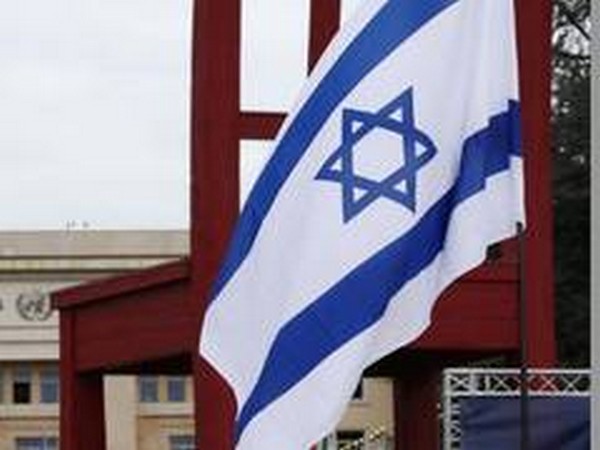Israel: Galilee Tourism Industry reinvents itself as war enters sixth month
Six months since October 7, the tourism industry in Israel's Galilee and Golan regions is reinventing itself as it navigates the adversities of war.

- Country:
- Israel
Tel Aviv [Israel], April 5 (ANI/TPS): Six months since October 7, the tourism industry in Israel's Galilee and Golan regions is reinventing itself as it navigates the adversities of war. "The north is empty of visitors these days," Safi Maklada, the Negev and Galilee Authority's Druze and Circassian tourism coordinator, told The Press Service of Israel. "You won't find anyone around except for the soldiers doing their duty, guarding the border and the communities, and their families dropping by for a visit."
Tourism, along with other small businesses and farms, is suffering losses as most Israeli residents evacuated the north in the face of daily Hezbollah rocket attacks. "We're always the ones taking the hardest hit, whether it's during a pandemic like COVID-19 or times of conflict," Shokat Monder, travel guide and resident of Ein Qiniyye Local Council in Golan Heights told TPSIL.
"In every crisis, tourism businesses are the ones feeling the impact first and struggling to bounce back." When questioned about visitor numbers in the north, both Monder and Maklada simultaneously responded, "None. There are no visitors."
In the absence of tourists, the Negev and Galilee Authority has pivoted to support tourist businesses. Maklada has taken the initiative to organise day trips for evacuated residents now residing in Tiberias and Nazareth, providing them with a much-needed break from hotel stays. Besides giving evacuees relief, the trips bolster the economies of local Druze and Circassian communities. "Hopefully we will return to normalcy, and the tourists, both from Israel and abroad, will come back to travel with us, we have the most beautiful, and breathtaking destinations, for the world to see," said Monder.
"It's such a shame, now, during this period, there are still flowing streams in the area...and no travellers to enjoy them." The government is providing economic relief to small businesses in proximity to the Lebanese border. But municipalities further from the border, such as the Bedouin village of Ka'abiyye-Tabbash-Hajajre near Haifa are also experiencing a tourism drought.
"After the start of the war, everything was cancelled, all the groups that were coordinated were cancelled, and only a few months ago we can see the tourists returning to travel little by little, but it's not what it used to be," Banzaheer Kaabiya, manager of Razor Nachal Tzipori, told TPSIL. Before October 7, Razor arranged outdoor excursions around the village and natural tourist attractions such as the Tzipori River, natural springs and a nearby nature reserve, including jeep and ATV rides. Kaabiya said she also offered Bedouin hospitality, but it was secondary. With fewer visitors, Kaabiya said her business is focusing more on hospitality now.
"We still offer hospitality with Bedouin food and folklore, and it lasts, but Razor tours that once accommodated 50-60 people are no longer the norm.travellers The flow of travelers to our area has become sporadic and unpredictable. We realize that even this state of affairs could change abruptly at any time," Kaabiya said. In Moshav Ramot in the Golan, LOL-Art experiences the same change in visitor patterns. The family business on the shore of the Sea of Galilee hosts woodworking workshops and sells crafts, but nobody visits.
"Our community isn't even within range of rocket fire, yet visitors simply disappeared. While the workload hasn't significantly changed, the absence of large groups is very noticeable. Instead of hosting 70-80 people, I now see about ten visitors per visit," Danielle Rotter, one of the owners told TPS-IL. Operations have become more complex because her brother, a co-owner, was called up for army reserve duty. The staff is learning to cover work with fewer employees around.
'What can you do? This is the reality of our times," Rotter said with a bittersweet smile. "We adapt. We have no choice." The need to adapt is all too familiar to business owners who had to evacuate their homes. Shula Giladi, a grandmother of five, embarked on her entrepreneurial journey roughly a decade ago. Before October, Giladi welcomed guests to her home in Moshav Shtula to taste homemade meals crafted from her family's Kurdish recipes. These meals were intertwined with stories about her family's migration from Kurdistan during Israel's early years.
"People love this kind of experience; they connect to it," Giladi remarked, explaining her business's popularity. In the month preceding October 7, Giladi hosted more than a dozen visits. To accommodate the growing interest, she expanded the house.
But now, the moshav, located right on the Lebanese border, faces rocket barrages and nobody knows when residents will be able to return. In the meantime, Giladi is staying at the Royal Beach Hotel, which graciously allowed her to set up a pop-up shop for her culinary creations. The rest of the time, she cooks for private events at other people's homes. "My business is me, and I can cook anywhere," Giladi said.
"In the end, tourism is about the business owners, and even in this tough period, we want to continue working," Giladi stressed. "Hopefully, visitors will come, as here in Israel, we have the most interesting people and the most important stories that need to be heard." (ANI/TPS)
(This story has not been edited by Devdiscourse staff and is auto-generated from a syndicated feed.)










